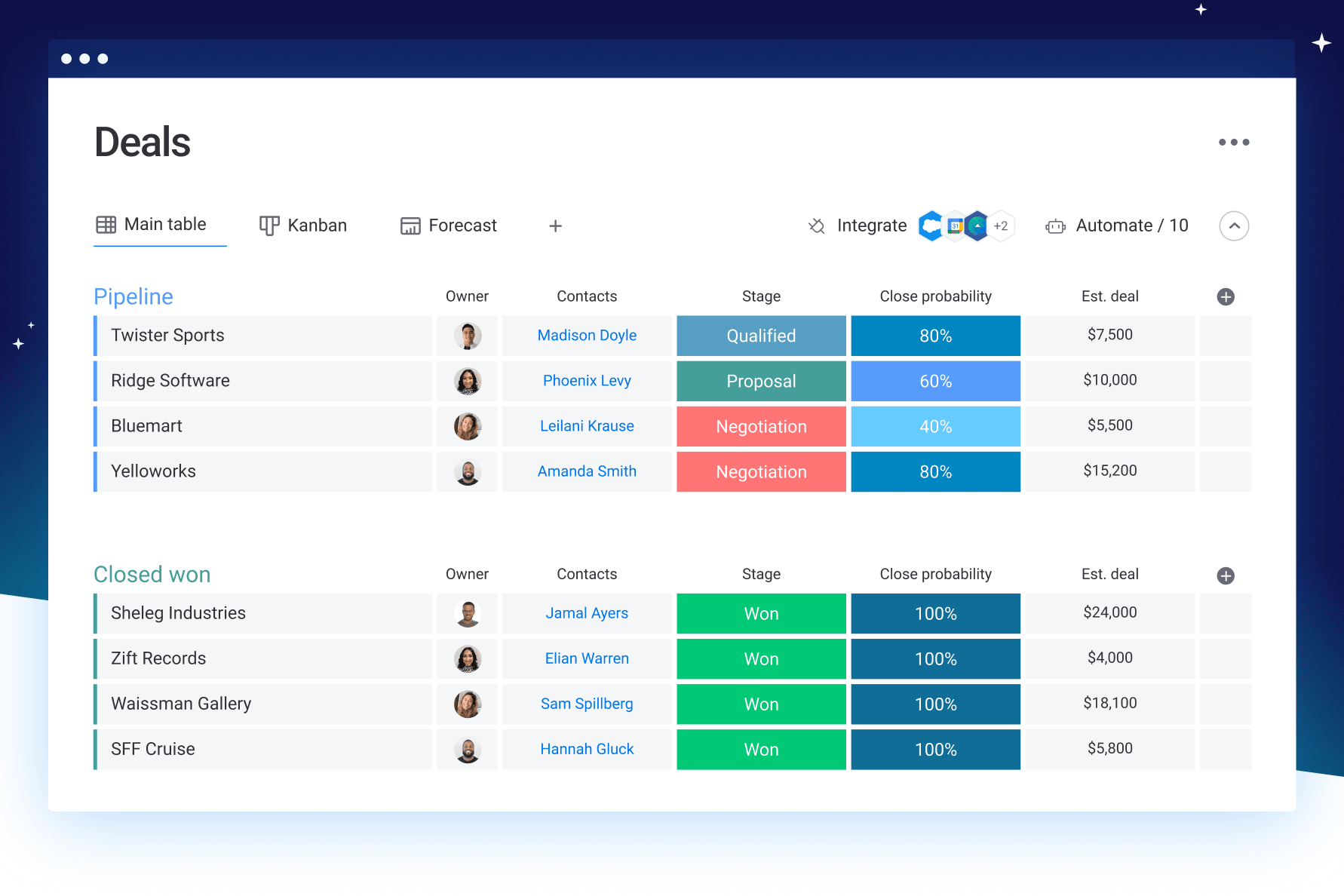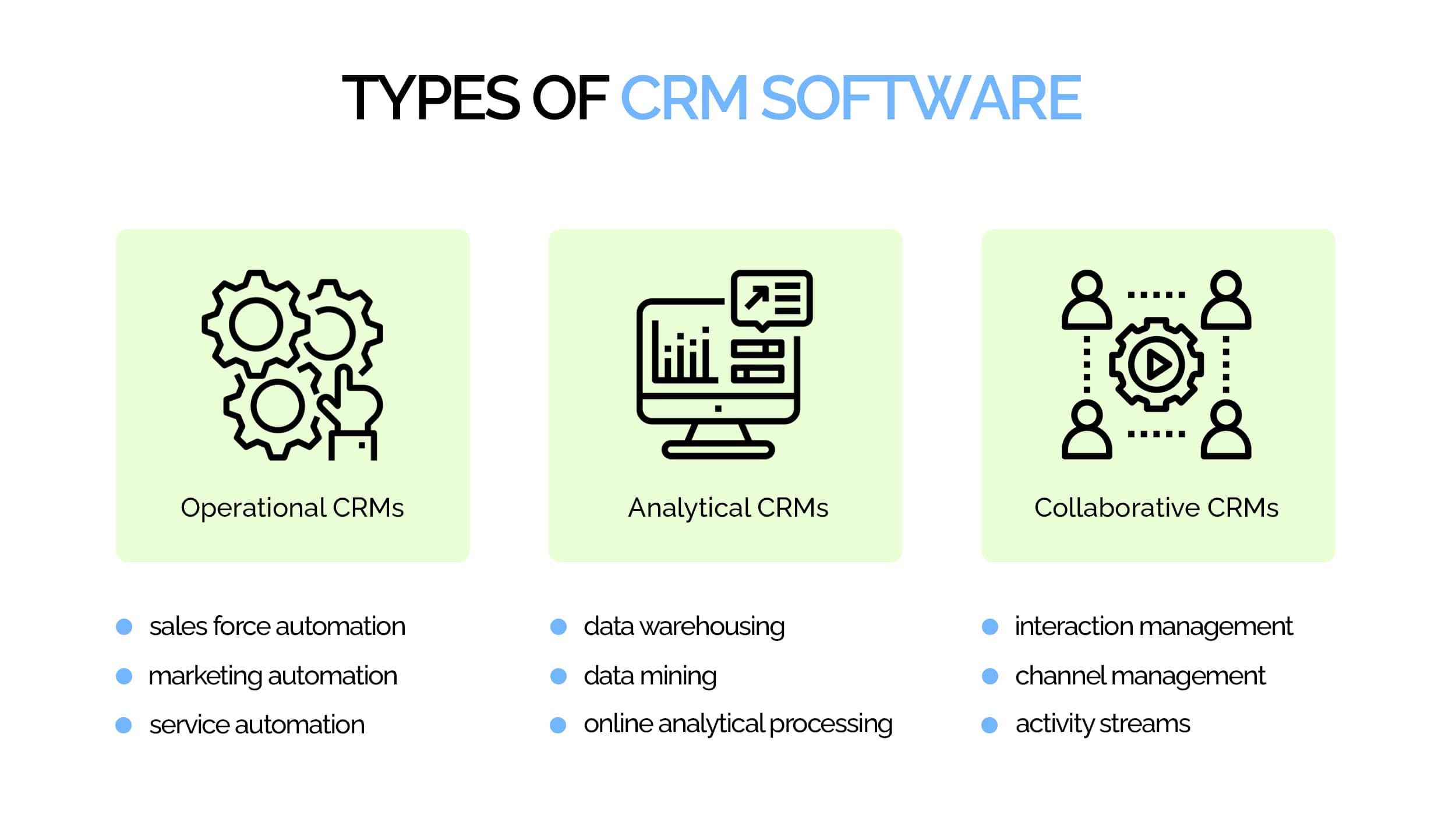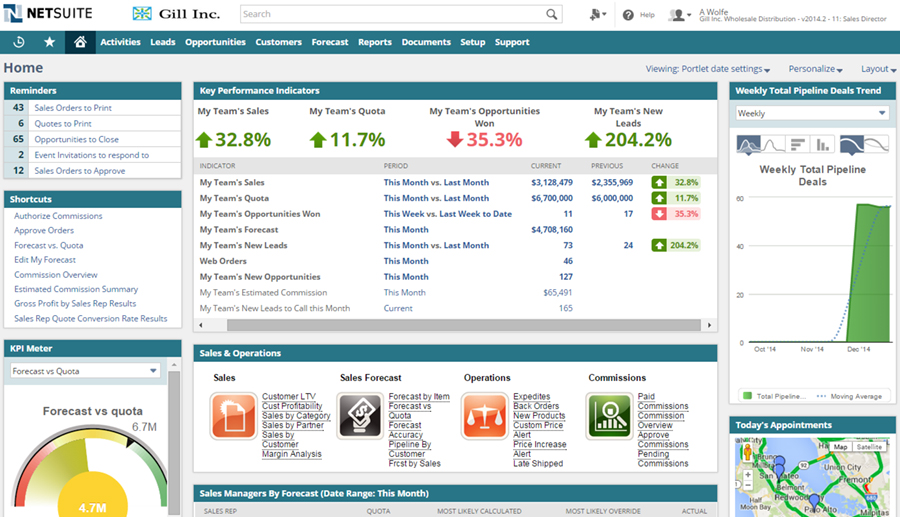CRM system software is a powerful tool that can help businesses of all sizes improve their customer relationships, boost sales, and increase profitability. By providing a centralized platform for managing customer data, CRM systems can help businesses track customer interactions, identify opportunities, and build stronger relationships.
In this comprehensive guide, we will explore the key features of CRM systems, discuss the benefits of implementing a CRM system, and provide tips for choosing the right CRM system for your business.
Overview of CRM System Software
Customer Relationship Management (CRM) systems are software applications that help businesses manage their interactions with customers and prospects. They provide a centralized platform for storing and tracking customer data, managing sales pipelines, and providing customer service. CRM systems can help businesses improve their customer relationships, increase sales, and improve operational efficiency.
Types of CRM Systems
There are several different types of CRM systems available, each designed to meet the specific needs of different businesses. Some of the most common types of CRM systems include:
- Operational CRM systemsfocus on managing day-to-day customer interactions, such as sales, marketing, and customer service.
- Analytical CRM systemsfocus on analyzing customer data to identify trends and patterns. This information can be used to improve customer segmentation, targeting, and marketing campaigns.
- Collaborative CRM systemsfocus on facilitating collaboration between different departments within a business, such as sales, marketing, and customer service. This can help to improve communication and coordination, and ensure that customers receive a consistent experience.
Key Features of CRM Systems
Customer Relationship Management (CRM) systems are designed to enhance interactions with customers and manage relationships effectively. They offer a range of essential features that streamline operations, improve communication, and drive customer satisfaction.
Here are some key features of CRM systems and examples of how they can be used in real-world scenarios:
Contact Management
CRM systems provide centralized storage and organization of customer data, including contact information, preferences, and interaction history. This allows businesses to maintain accurate and up-to-date customer records, facilitating personalized communication and targeted marketing campaigns.
Sales Management
CRM systems automate and streamline sales processes, from lead generation to order management. They enable sales teams to track leads, manage opportunities, and forecast sales pipelines. This helps businesses identify and prioritize sales opportunities, improve conversion rates, and increase revenue.
Marketing Automation
CRM systems offer marketing automation capabilities that allow businesses to create and execute targeted marketing campaigns across multiple channels. They can segment customer data, personalize messages, and automate email campaigns, lead nurturing sequences, and social media marketing.
Customer Service Management
CRM systems provide tools for managing customer service interactions. They enable businesses to track customer inquiries, resolve issues efficiently, and provide personalized support. This helps improve customer satisfaction, reduce churn, and build stronger relationships.
Analytics and Reporting
CRM systems generate valuable insights through data analytics and reporting. They provide businesses with metrics on customer behavior, sales performance, and marketing effectiveness. This data helps businesses make informed decisions, identify areas for improvement, and optimize their CRM strategies.
Benefits of Implementing a CRM System
Implementing a CRM system can provide numerous benefits for businesses of all sizes. These benefits can be quantified in terms of increased revenue, improved customer satisfaction, and reduced costs.
One of the most significant benefits of CRM systems is their ability to increase revenue. By providing a centralized view of customer data, CRM systems can help businesses identify and target potential customers, track sales pipelines, and close deals more efficiently.
In a study by Salesforce, companies that implemented CRM systems saw an average increase in revenue of 15%.
Case Studies
- Company A:A manufacturing company implemented a CRM system and saw a 20% increase in sales within the first year.
- Company B:A retail company implemented a CRM system and saw a 15% increase in customer satisfaction scores.
- Company C:A non-profit organization implemented a CRM system and saw a 10% decrease in operating costs.
Challenges of Implementing a CRM System
Implementing a CRM system can be a complex and challenging process. Organizations may encounter various obstacles during the implementation phase, including:
Data Integration
Integrating data from multiple sources, such as legacy systems, spreadsheets, and other applications, can be a significant challenge. Data inconsistency, duplication, and errors can arise during the integration process, affecting the accuracy and reliability of the CRM system.
User Adoption
Getting users to adopt and effectively utilize the new CRM system can be challenging. Resistance to change, lack of training, and poor user experience can hinder user adoption, reducing the system’s effectiveness and return on investment.
Process Reengineering
Implementing a CRM system often requires reengineering existing business processes to align with the system’s capabilities. This can be a complex and time-consuming task, requiring careful planning, stakeholder involvement, and change management strategies.
Customization and Configuration
CRM systems are often highly customizable, allowing organizations to tailor them to their specific needs. However, excessive customization can increase complexity, introduce errors, and make upgrades and maintenance more challenging.
Cost and Resources
Implementing a CRM system can be a significant investment in terms of cost and resources. Organizations need to carefully consider the costs associated with software licensing, hardware, implementation, training, and ongoing maintenance.
Tips for Overcoming Challenges
To overcome these challenges, organizations should consider the following best practices:
- Conduct thorough data analysis and planning before data integration to ensure data accuracy and consistency.
- Provide comprehensive training and support to users to facilitate adoption and maximize system utilization.
- Involve stakeholders in the process reengineering phase to gain buy-in and ensure alignment with business objectives.
- Customize the CRM system judiciously, balancing the need for functionality with the potential for complexity and maintenance issues.
- Secure adequate funding and resources to support the implementation and ongoing maintenance of the CRM system.
Comparison of Different CRM Systems

When selecting a CRM system, it’s crucial to compare different options to find the best fit for your business. Various CRM systems offer unique features, pricing models, and strengths and weaknesses.
To facilitate your decision-making process, we’ve compiled a comprehensive table comparing the features and pricing of leading CRM systems. This table will help you identify the strengths and weaknesses of each system and make an informed choice.
Table: Comparison of CRM Systems
| CRM System| Key Features| Pricing| Strengths| Weaknesses||—|—|—|—|—|| Salesforce | Comprehensive CRM suite with advanced automation, analytics, and customization options | Subscription-based, starting at $25 per user per month | Robust feature set, strong ecosystem, and scalability | High cost, complexity for small businesses || HubSpot | User-friendly CRM with marketing, sales, and service tools | Free plan available, paid plans starting at $45 per month | Easy to use, integrated marketing and sales tools | Limited customization options, less robust automation capabilities || Zoho CRM | Affordable CRM with a wide range of features and integrations | Free plan available, paid plans starting at $12 per user per month | Excellent value for money, extensive customization options | Limited reporting and analytics capabilities || Microsoft Dynamics 365 | Powerful CRM integrated with Microsoft Office suite | Subscription-based, pricing varies based on features and deployment | Deep integration with Microsoft ecosystem, advanced analytics | High cost, complex implementation || SugarCRM | Open-source CRM with flexible customization and integration options | Subscription-based, pricing varies based on features and deployment | High level of customization, strong community support | Can be complex to implement and maintain |
Tips for Choosing the Right CRM System

Selecting the right CRM system is crucial for businesses to optimize their customer relationships and streamline operations. Here’s a comprehensive guide to help you navigate the process effectively.
Before embarking on the selection process, it’s essential to define your business objectives, identify your specific requirements, and determine your budget. This will provide a clear framework for evaluating and comparing different CRM systems.
Key Considerations
- Scalability:Choose a system that can accommodate your current and future growth needs.
- Integration:Ensure the CRM system seamlessly integrates with your existing business applications.
- Customization:Select a system that allows you to tailor it to meet your unique business processes.
- Security:Prioritize data security by choosing a system with robust security measures.
- Support:Opt for a system that provides reliable and responsive customer support.
Best Practices for Using CRM Systems: Crm System Software

Maximize the effectiveness of your CRM system by following these best practices, encompassing data management, user adoption, and ongoing maintenance.
Data Management, Crm system software
Maintaining accurate and up-to-date customer data is crucial. Implement data quality processes to ensure data integrity, accuracy, and consistency.
- Establish data entry standards and guidelines.
- Use data validation tools to ensure accuracy.
- Regularly audit and clean data to remove duplicates and outdated information.
User Adoption
Ensure users embrace and actively utilize the CRM system. Provide training, support, and resources to facilitate adoption.
- Tailor training to specific user roles and responsibilities.
- Offer ongoing support and technical assistance.
- Create user-friendly interfaces and intuitive workflows.
Ongoing Maintenance
Regularly update and maintain the CRM system to ensure optimal performance and security. Stay abreast of new features and updates.
- Apply software updates and patches promptly.
- Monitor system performance and identify areas for improvement.
- Review and update business processes to align with CRM capabilities.
Emerging Trends in CRM Systems
The CRM landscape is constantly evolving, with new trends emerging all the time. These trends are shaping the future of CRM systems and making them more powerful and user-friendly than ever before.One of the most significant trends in CRM is the rise of artificial intelligence (AI).
AI-powered CRM systems can automate many tasks, such as lead scoring, customer segmentation, and predictive analytics. This frees up sales reps to focus on more strategic activities, such as building relationships with customers and closing deals.Another major trend is the increasing popularity of cloud-based CRM systems.
Cloud-based CRM systems are hosted on the internet, so they can be accessed from anywhere with an internet connection. This makes them ideal for businesses with remote sales teams or employees who travel frequently.Finally, there is a growing trend towards using CRM systems to manage customer experience (CX).
CX is all about creating a positive experience for customers at every touchpoint. CRM systems can help businesses track customer interactions, identify pain points, and improve the overall customer experience.These are just a few of the emerging trends in CRM systems.
As these trends continue to evolve, CRM systems will become even more powerful and essential for businesses of all sizes.
AI-Powered CRM Systems
AI-powered CRM systems use artificial intelligence to automate tasks and improve decision-making. This can lead to a number of benefits for businesses, including:* Increased efficiency: AI-powered CRM systems can automate many tasks, such as lead scoring, customer segmentation, and predictive analytics.
This frees up sales reps to focus on more strategic activities, such as building relationships with customers and closing deals.
Improved decision-making
AI-powered CRM systems can provide sales reps with insights into customer behavior and trends. This information can help sales reps make better decisions about which leads to pursue and how to close deals.
Increased sales
AI-powered CRM systems can help businesses increase sales by identifying opportunities and recommending next steps.
Cloud-Based CRM Systems
Cloud-based CRM systems are hosted on the internet, so they can be accessed from anywhere with an internet connection. This makes them ideal for businesses with remote sales teams or employees who travel frequently.There are a number of benefits to using a cloud-based CRM system, including:* Accessibility: Cloud-based CRM systems can be accessed from anywhere with an internet connection.
This makes them ideal for businesses with remote sales teams or employees who travel frequently.
Scalability
Cloud-based CRM systems can be easily scaled up or down to meet the needs of your business. This makes them a good option for businesses of all sizes.
Security
Cloud-based CRM systems are hosted by reputable providers who have invested heavily in security. This ensures that your data is safe and secure.
CRM Systems for Customer Experience Management
CRM systems can be used to manage customer experience (CX) at every touchpoint. This can lead to a number of benefits for businesses, including:* Increased customer satisfaction: CRM systems can help businesses track customer interactions, identify pain points, and improve the overall customer experience.
This can lead to increased customer satisfaction and loyalty.
Increased sales
A positive customer experience can lead to increased sales. This is because customers are more likely to do business with companies that they trust and that provide a good experience.
Improved reputation
A positive customer experience can help businesses improve their reputation. This can lead to increased brand awareness and customer loyalty.
Case Studies of Successful CRM Implementations

In this section, we will provide detailed case studies of businesses that have successfully implemented CRM systems. We will highlight the key factors that contributed to their success, providing valuable insights for organizations considering implementing CRM solutions.
CRM systems have transformed the way businesses manage customer relationships, resulting in numerous success stories. By leveraging the capabilities of CRM, companies have enhanced their operational efficiency, improved customer satisfaction, and increased revenue.
Case Study: Salesforce Success at XYZ Corporation
XYZ Corporation, a leading technology provider, successfully implemented Salesforce CRM to streamline its sales and customer support operations. The implementation resulted in:
- Improved sales productivity by 25% through automated lead management and tracking.
- Enhanced customer satisfaction by 30% due to faster response times and personalized interactions.
- Increased revenue by 15% through improved sales forecasting and targeted marketing campaigns.
Key factors contributing to XYZ Corporation’s success included:
- Clear definition of business objectives and alignment with CRM capabilities.
- Comprehensive data migration and cleansing to ensure data accuracy.
- Extensive user training and adoption programs to foster CRM utilization.
Glossary of CRM Terms
A comprehensive glossary of common CRM terms, providing clear and concise definitions for each term, is essential for understanding the fundamentals of CRM systems.
This glossary will serve as a valuable resource for professionals seeking to enhance their knowledge of CRM terminology and its applications in customer relationship management.
Key CRM Terms
- Customer Relationship Management (CRM):A strategy for managing and analyzing customer interactions and data throughout the customer lifecycle to improve business relationships.
- Customer Relationship Management System (CRM System):A software application that helps businesses manage customer relationships by tracking interactions, automating tasks, and providing insights.
- Customer Relationship Management Software (CRM Software):A specific type of CRM system that focuses on managing customer interactions and data.
- Customer Relationship Management Platform (CRM Platform):A broader term that encompasses CRM systems, software, and other tools used for customer relationship management.
- Customer Relationship Management Process (CRM Process):A set of steps and procedures used to manage customer relationships, including lead generation, lead qualification, sales, and customer service.
- Customer Data Management (CDM):The process of collecting, storing, and managing customer data to gain insights and improve customer relationships.
- Customer Data Platform (CDP):A technology platform that centralizes customer data from multiple sources to create a unified customer view.
- Customer Experience (CX):The overall experience that customers have with a business, encompassing all interactions and touchpoints.
- Customer Lifetime Value (CLTV):The total value of a customer’s business over their lifetime.
- Customer Segmentation:The process of dividing customers into groups based on shared characteristics or behaviors.
Ultimate Conclusion

CRM system software is an essential tool for any business that wants to improve its customer relationships and grow its business. By implementing a CRM system, businesses can gain a better understanding of their customers, identify opportunities for growth, and build stronger relationships with their customers.
FAQ Corner
What is CRM system software?
CRM system software is a tool that helps businesses manage their customer relationships. It provides a centralized platform for storing customer data, tracking customer interactions, and managing sales and marketing campaigns.
What are the benefits of using CRM system software?
CRM system software can help businesses improve their customer relationships, boost sales, and increase profitability. By providing a centralized platform for managing customer data, CRM systems can help businesses track customer interactions, identify opportunities, and build stronger relationships.
How do I choose the right CRM system software for my business?
There are a number of factors to consider when choosing a CRM system software for your business. These factors include the size of your business, the industry you are in, and your budget. It is important to do your research and compare different CRM systems before making a decision.